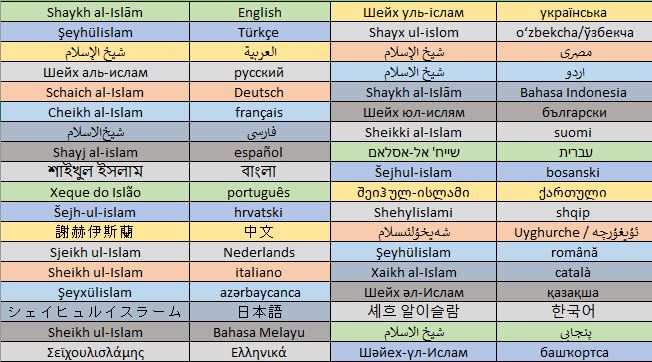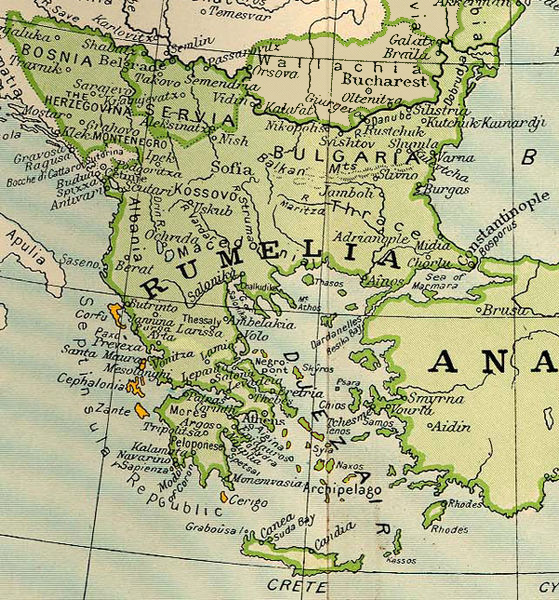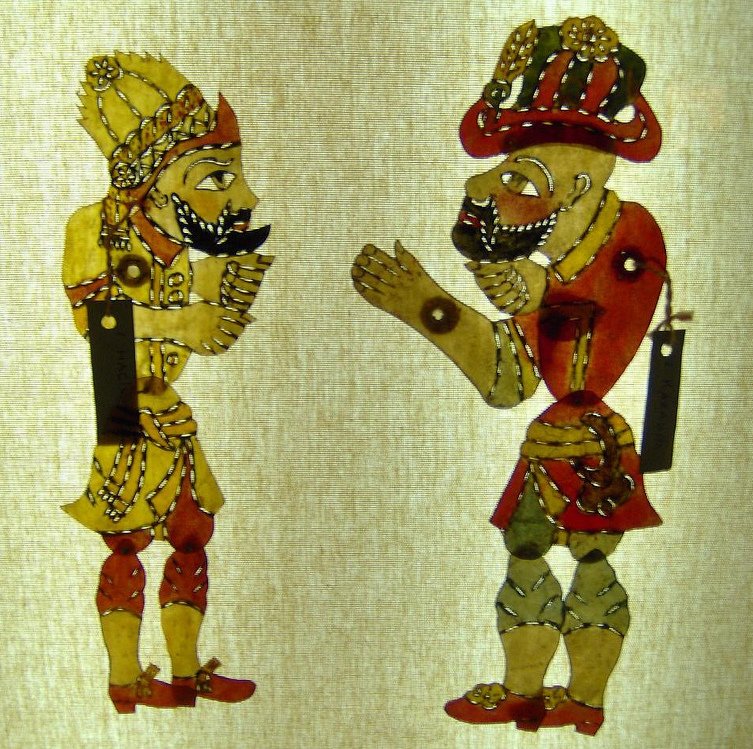|
Ebussuud Effendi
Ebussuud Efendi ( tr, Mehmed Ebüssuûd Efendi, 30 December 1490 – 23 August 1574)İsmail Hâmi Danişmend, ''Osmanlı Devlet Erkânı'', Türkiye Yayınevi, İstanbul, 1971, p. 114. was a Hanafi Maturidi Ottoman jurist and Qur'an exegete, who served as the Qadi (judge) of Istanbul from 1533 to 1537, and the Shaykh al-Islām of the Ottoman Empire from 1545 to 1574. He was also called "El-İmâdî" because his family was from Imâd, a village near Iskilip. Ebussuud was the son of Iskilipli Sheikh Muhiddin Muhammad Efendi. In the 1530s, Ebussuud served as judge in Bursa, Istanbul and Rumelia, where he brought local laws into conformity with Islamic divine law (''sharia''). Sultan Suleiman the Magnificent promoted him to Shaykh al-Islām – supreme judge and highest official – in 1545, an office Ebussuud held until his death and which he brought to the peak of its power.Schneider, 192. He worked closely with the Sultan, issuing judicial opinions that legitimised Suleiman' ... [...More Info...] [...Related Items...] OR: [Wikipedia] [Google] [Baidu] |
Shaykh Al-Islām
Shaykh al-Islām ( ar, شيخ الإسلام, Šayḫ al-Islām; fa, شِیخُالاسلام ''Sheykh-ol-Eslām''; ota, شیخ الاسلام, Şhaykḫu-l-İslām or ''Sheiklı ul-Islam''; tr, Şeyhülislam) was used in the classical era as an honorific title for outstanding scholars of the Islamic sciences.Gerhard Böwering, Patricia Crone, Mahan Mirza, The Princeton Encyclopedia of Islamic Political Thought, p 509-510. It first emerged in Khurasan towards the end of the 4th Islamic century. In the central and western lands of Islam, it was an informal title given to jurists whose ''fatwas'' were particularly influential, while in the east it came to be conferred by rulers to ''ulama'' who played various official roles but were not generally ''muftis''. Sometimes, as in the case of Ibn Taymiyya, Ibn Taymiyyah, the use of the title was subject to controversy. In the Ottoman Empire, starting from the early modern era, the title came to designate the chief mufti, who over ... [...More Info...] [...Related Items...] OR: [Wikipedia] [Google] [Baidu] |
Rumelia
Rumelia ( ota, روم ايلى, Rum İli; tr, Rumeli; el, Ρωμυλία), etymologically "Land of the Names of the Greeks#Romans (Ῥωμαῖοι), Romans", at the time meaning Eastern Orthodox Christians and more specifically Christians from the Byzantine Rite, Byzantine rite, was the name of a historical region in Southeastern Europe that was administered by the Ottoman Empire, corresponding to the Balkans. In its wider sense, it was used to refer to all Ottoman possessions and Vassal state, vassals in Europe that would later be geopolitically classified as "the Balkans". During the period of its existence, it was more often known in English as Ottoman Empire, Turkey in Europe. Etymology ''Rûm'' in this context means "Greek", or a Christian Greek speaker and ''ėli'' means "land" and ''Rumelia'' ( ota, روم ايلى, ''Rūm-ėli''; Turkish language, Turkish: ''Rumeli'') means "Land of the Romans" in Ottoman Turkish language, Ottoman Turkish. It refers to the lands co ... [...More Info...] [...Related Items...] OR: [Wikipedia] [Google] [Baidu] |
1574 Deaths
__NOTOC__ Year 1574 ( MDLXXIV) was a common year starting on Friday (link will display the full calendar) of the Julian calendar. Events January–June * February 23 – The fifth War of Religion against the Huguenots begins in France. * April 14 – Battle of Mookerheyde: Spanish forces under Sancho de Avila defeat the rebel forces of Louis of Nassau, who is killed. * May 30 – On the death of King Charles IX of France of a tubercular condition at the Château de Vincennes, he is succeeded by his brother King Henry of Poland, who becomes King Henry III of France. His mother, Catherine de' Medici, acts as Regent, until Henry arrives from Poland. * June 10 – Manila, Philippines gains cityhood. July–December * August 30 – Guru Ram Das becomes the fourth of the Sikh gurus. * September – A plot to assassinate John III of Sweden is discovered, headed by Charles de Mornay and implicating Charles Dancay, Hogenskild Bielke, ... [...More Info...] [...Related Items...] OR: [Wikipedia] [Google] [Baidu] |
1490 Births
*
{{Number disambiguation ...
149 may refer to: * 149 (number), a natural number *AD 149, a year in the 2nd century AD * 149 BC, a year in the 2nd century BC *British Airways Flight 149, a flight from LHR to Kuwait City International Airport; the aircraft flying this flight was destroyed by Iraqi troops See also * List of highways numbered 149 The following highways are numbered 149: Canada * Prince Edward Island Route 149 Costa Rica * National Route 149 (Costa Rica), National Route 149 India * National Highway 149 (India) Japan * Japan National Route 149 United States * Alabama St ... [...More Info...] [...Related Items...] OR: [Wikipedia] [Google] [Baidu] |
Islamic Modernism
Islamic modernism is a movement that has been described as "the first Muslim ideological response to the Western cultural challenge" attempting to reconcile the Islamic faith with modern values such as democracy, civil rights, rationality, equality, and progress.''Encyclopedia of Islam and the Muslim World'', Thompson Gale (2004) It featured a "critical reexamination of the classical conceptions and methods of jurisprudence" and a new approach to Islamic theology and Quranic exegesis (''Tafsir''). A contemporary definition describes it as an "effort to re-read Islam's fundamental sources—the Qur'an and the Sunna, (the practice of the Prophet) —by placing them in their historical context, and then reinterpreting them, non-literally, in the light of the modern context." It was one of the of several Islamic movements – including Islamic secularism, Islamism, and Salafism – that emerged in the middle of the 19th century in reaction to the rapid changes of the time, especia ... [...More Info...] [...Related Items...] OR: [Wikipedia] [Google] [Baidu] |
Riba
The Royal Institute of British Architects (RIBA) is a professional body for architects primarily in the United Kingdom, but also internationally, founded for the advancement of architecture under its royal charter granted in 1837, three supplemental charters and a new charter granted in 1971. Founded as the Institute of British Architects in London in 1834, the RIBA retains a central London headquarters at 66 Portland Place as well as a network of regional offices. Its members played a leading part in promotion of architectural education in the United Kingdom; the RIBA Library, also established in 1834, is one of the three largest architectural libraries in the world and the largest in Europe. The RIBA also played a prominent role in the development of UK architects' registration bodies. The institute administers some of the oldest architectural awards in the world, including RIBA President's Medals Students Award, the Royal Gold Medal, and the Stirling Prize. It also manages ... [...More Info...] [...Related Items...] OR: [Wikipedia] [Google] [Baidu] |
Coffee
Coffee is a drink prepared from roasted coffee beans. Darkly colored, bitter, and slightly acidic, coffee has a stimulant, stimulating effect on humans, primarily due to its caffeine content. It is the most popular hot drink in the world. Seeds of the ''Coffea'' plant's fruits are separated to produce unroasted green coffee beans. The beans are Coffee roasting, roasted and then ground into fine particles that are typically steeped in hot water before being filtered out, producing a cup of coffee. It is usually served hot, although chilled or iced coffee is common. Coffee can be prepared and presented in a variety of ways (e.g., espresso, French press, caffè latte, or already-brewed canned coffee). Sugar, sugar substitutes, milk, and cream are often used to mask the bitter taste or enhance the flavor. Though coffee is now a global commodity, it has a History of coffee, long history tied closely to food traditions around the Red Sea. The earliest credible evidence of coffee d ... [...More Info...] [...Related Items...] OR: [Wikipedia] [Google] [Baidu] |
Karagöz And Hacivat
Karagöz (literally ''Blackeye'' in Turkish) and Hacivat (shortened in time from "Hacı İvaz" meaning "İvaz the Pilgrim", and also sometimes written as Hacivad) are the lead characters of the traditional Turkish shadow play, popularized during the Ottoman period and then spread to most nation states of the Ottoman Empire. It is most prominent in Turkey, Greece, Bosnia and Herzegovina and Adjara (autonomous republic of Georgia). In Greece, Karagöz is known by his local name Karagiozis; in Bosnia and Herzegovina, he is known by his local name Karađoz. Overview The central theme of the plays is the contrasting interaction between the two main characters. These are perfect foils of each other: in the Turkish version, Karagöz represents the illiterate but straightforward public, whereas Hacivat belongs to the educated class, speaking Ottoman Turkish and using a poetical and literary language. Although Karagöz is the more popular character with the Turkish peasantry, Hacivat ... [...More Info...] [...Related Items...] OR: [Wikipedia] [Google] [Baidu] |
Qanun (law)
Qanun is an Arabic word ( ar, قانون, translit=qānūn; ota, قانون, translit=kānūn, derived from grc, κανών, translit=kanōn, which is also the root for the modern English word "canon"). Qanun can refer to laws established by Muslim sovereigns, in particular the body of administrative, economic and criminal law promulgated by Ottoman sultans, in contrast to sharia, the body of law elaborated by Muslim jurists. It is thus frequently translated as "dynastic law." History The idea of ''qanun'' entered the Muslim World in the thirteenth century, borrowed from the Mongol Empire following their invasions. The 10th sultan of the Ottoman Empire, Suleiman was known in the Ottoman Empire as Suleiman Kanuni ("the Lawgiver"), due to the laws he promulgated. After the fall of the Abbasid Caliphate in 1258, a practice known to the Turks and Mongols transformed itself into Qanun, which gave power to caliphs, governors, and sultans alike to "make their own regulations for a ... [...More Info...] [...Related Items...] OR: [Wikipedia] [Google] [Baidu] |
Safavid Dynasty
The Safavid dynasty (; fa, دودمان صفوی, Dudmâne Safavi, ) was one of Iran's most significant ruling dynasties reigning from 1501 to 1736. Their rule is often considered the beginning of modern Iranian history, as well as one of the gunpowder empires. The Safavid Shāh Ismā'īl I established the Twelver denomination of Shīʿa Islam as the official religion of the Persian Empire, marking one of the most important turning points in the history of Islam. The Safavid dynasty had its origin in the Safavid order of Sufism, which was established in the city of Ardabil in the Iranian Azerbaijan region. It was an Iranian dynasty of Kurdish origin, but during their rule they intermarried with Turkoman, Georgian, Circassian, and Pontic GreekAnthony Bryer. "Greeks and Türkmens: The Pontic Exception", ''Dumbarton Oaks Papers, Vol. 29'' (1975), Appendix II "Genealogy of the Muslim Marriages of the Princesses of Trebizond" dignitaries, nevertheless they were Turkish-spea ... [...More Info...] [...Related Items...] OR: [Wikipedia] [Google] [Baidu] |
Qizilbash
Qizilbash or Kizilbash ( az, Qızılbaş; ota, قزيل باش; fa, قزلباش, Qezelbāš; tr, Kızılbaş, lit=Red head ) were a diverse array of mainly Turkoman Shia militant groups that flourished in Iranian Azerbaijan, Anatolia, the Armenian Highlands, the Caucasus, and Kurdistan from the late 15th century onwards, and contributed to the foundation of the Safavid dynasty of Iran. Roger M. Savory: "''Kizil-Bash''. In ''Encyclopaedia of Islam'', Vol. 5, pp. 243–245. Etymology The word Qizilbash derives from Turkish ''Kızılbaş'', meaning "red head". The expression is derived from their distinctive twelve- gored crimson headwear (''tāj'' or ''tark'' in Persian; sometimes specifically titled "Haydar's Crown" / ''Tāj-e Ḥaydar''),''Tāj'', meaning ''crown'' in Persian, is also a term for hats used to delineate one's affiliation to a particular Sufi order. indicating their adherence to the Twelve Imams and to Shaykh Haydar, the spiritual leader (''sheikh'') of ... [...More Info...] [...Related Items...] OR: [Wikipedia] [Google] [Baidu] |
Fatwā
A fatwā ( ; ar, فتوى; plural ''fatāwā'' ) is a legal ruling on a point of Islamic law (''sharia'') given by a qualified '' Faqih'' (Islamic jurist) in response to a question posed by a private individual, judge or government. A jurist issuing fatwas is called a ''mufti'', and the act of issuing fatwas is called ''iftāʾ''. Fatwas have played an important role throughout Islamic history, taking on new forms in the modern era. Resembling ''jus respondendi'' in Roman law and rabbinic ''responsa'', privately issued fatwas historically served to inform Muslim populations about Islam, advise courts on difficult points of Islamic law, and elaborate substantive law. In later times, public and political fatwas were issued to take a stand on doctrinal controversies, legitimize government policies or articulate grievances of the population. During the era of European colonialism, fatwas played a part in mobilizing resistance to foreign domination. Muftis acted as independent s ... [...More Info...] [...Related Items...] OR: [Wikipedia] [Google] [Baidu] |







